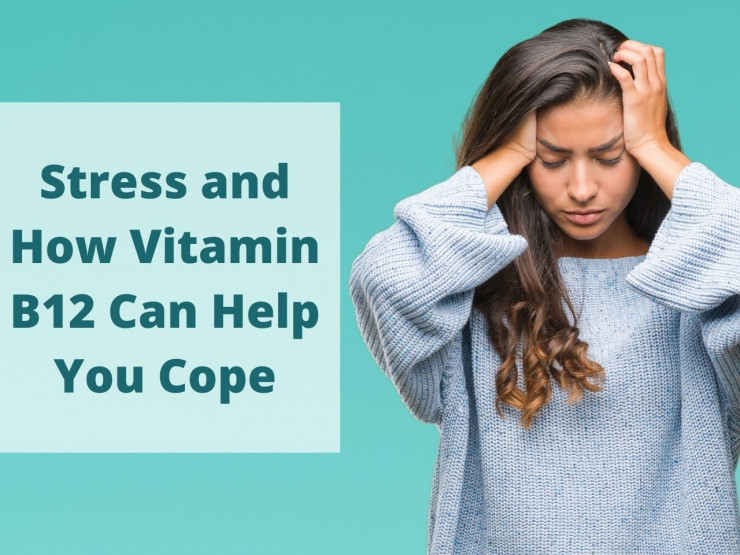Feeling extremely stressed, overwhelmed or anxious? You’re not alone.
According to a UK-wide survey from The Mental Health Foundation in 2018, 74% of UK adults have felt so stressed that they felt overwhelmed or unable to cope.
With the added pressures of the pandemic and global politics, these figures are almost certainly higher than ever in 2022.
This Stress Awareness Month (April 2022), we’d like to help raise awareness of the causes of stress and what you can do to help yourself better manage stress so you can feel like your usual self again.
We’ll cover what stress is, how it impacts your body, how vitamin B can help and what else you can do.
What is stress?
Stress is the feeling of pressure or being unable to cope with mental or emotional pressure.
It can be caused by a wide variety of different triggers including bereavement, loss, separation or divorce, job loss, financial problems, pressure at work or even life changes such as moving home or getting married.
Despite how it might appear, stress can be a positive thing. It helps us to react to life, achieve our best, reach our goals and help us become smarter, happier and more fulfilled.
However, chronic stress is a bad thing and can leave you feeling overanxious, overwhelmed and can even affect your overall health.
What does stress do to our bodies?
When you encounter a stressful situation, your body’s ‘fight or flight’ response is triggered automatically.
This causes your nervous system to release a cascade of hormones including adrenaline and cortisol. Blood also rushes away from your internal organs to your limbs, your heart rate, blood pressure and breathing rate increase, and your digestive system slows down temporarily to help you deal with the perceived threat and keep you safe.
If you’re under any type of stress, whether short-term or chronic, you are likely to experience a range of symptoms that includes:
● Headache
● Sleep problems
● Digestive issues
● Nausea
● Sweating
● Heart palpitations
● Aches and pains
You might also start to withdraw from other people, experience mood swings, be tearful, have sexual problems or find yourself smoking, drinking or taking drugs more than usual.
According to The Stress Management Society, stress can also cause around 1 in 4 people’s productivity levels to decline and 1 in 10 to make poor decisions.
How can vitamin B12 help?
Stress is known to deplete our levels of B vitamins, especially vitamin B12. Vegetarians, vegans and those on restricted diets can struggle to get enough vitamin B12 to meet their body’s needs.
Also known as cobalamin, this is a water-soluble vitamin that is found in some foods such as eggs, milk, cheese, milk products, fish and shellfish and can also be created by bacteria in the small intestine.
It helps your body produce red blood cells, keeps your immune system healthy, helps release energy from food, helps balance brain function and development, boosts the hormones essential for sleep and mood and also creates DNA and RNA.
Making sure you’re getting enough vitamin B12 by taking a supplement or getting a vitamin B12 injection at your local pharmacy can help you better deal with stress and ensure you stay healthy and happy, regardless of what is going on in your life.
Tips to reduce stress
If you’re struggling with chronic stress, there are many other things you can do to improve how you are feeling. Here are eight of the most effective:
1. Monitor your stress levels
Make sure you don’t ignore warning signs of stress. If you notice something isn’t right, think about what could be causing this and make a plan to address the root cause.
2. Better manage your stress levels
How do you deal with stress? Consider practising yoga or mindfulness, engaging in creative activities and trying to find time to relax every day.
3. Lean on your support networks
The support of close friends and family can be invaluable, especially if you’re going through tough times. Build your social network and don’t be afraid to turn to those you trust for help, if needed.
4. Eat a healthy diet
Make sure you’re getting enough essential nutrients (especially B12) by eating plenty of fruits, veggies, healthy proteins and fats and reducing your intake of junk foods.
5. Cut down on smoking or drinking
Although these can feel like emotional crutches when you’re feeling stressed, they can make anxiety worse and have a detrimental effect on your health. Contact us if you need help.
6. Stay active
Exercise can be a great stress relief as it boosts those feel-good hormones and gets you out into the fresh air.
7. Get enough sleep
When you get enough sleep, your body can function more effectively, you’ll have more energy and you’ll find it easier to cope with stress. Aim for around 8 hours per night.
8. Focus on the positives
Even if it feels hard, try to keep things in perspective and look for things to be grateful for. You’ll be amazed at how much better you feel as a result.
Need help coping with your stress? Pop into your pharmacy for advice and support from our team of trusted professionals.



